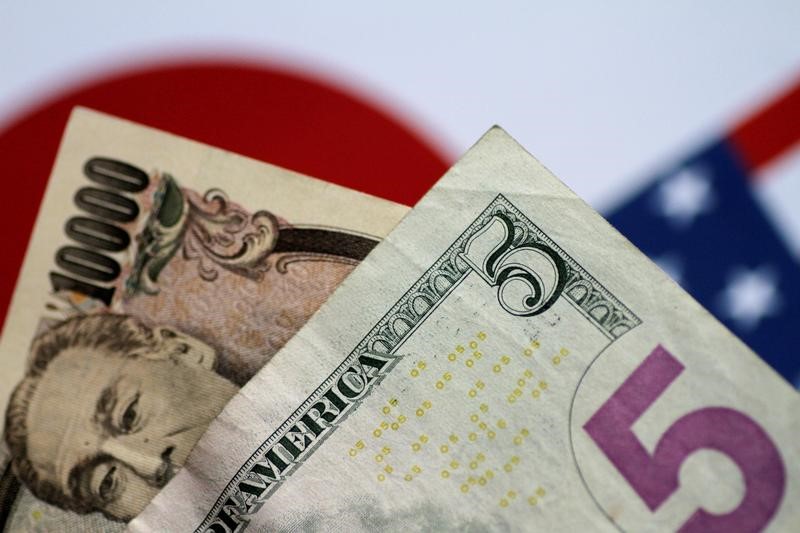USD/JPY has seen volatile trade for some time, and Citigroup (NYSE:C) now thinks traders should position for the pair to rebound.
“We believe the sharp fall in the USD/JPY last summer marked a turning point from a long-term trend of weakening to strengthening for the JPY,” said analysts at Citi, in a note.
USD/JPY then started to form a triangle top with an upper limit of ¥160 and a lower limit of ¥140, the bank added.
“With the currency pair having fallen to around ¥140 at present, we think it is increasingly likely to form a descending (bearish) triangle rather than the vertically symmetrical triangle usually envisaged.”
At 06:35 ET (10:35 GMT), USD/JPY traded 1% lower at ¥144.36, up 1.2% over the last week, but still more than 8% lower this year to date.
The bank’s position indices indicate there has been a recent reduction in dollar shorts by hedge funds and other leveraged investors compared with March. Even so there has been an increase in JPY and EUR longs since then, so we suspect considerable pressure for a short-term correction has built up.
“A quick bounce to ¥145 would not be a particular surprise,” Citi added.
Japanese Minister for Economic Revitalization Ryosei Akazawa is visiting the U.S. for second-round negotiations with US Treasury Secretary Scott Bessent this week, but we do not expect any surprising announcements. Nothing in particular was suggested at the earlier meeting between Treasury Secretary Bessent and Japanese Finance Minister Katsunobu Kato.
Even so, if the US tries to weaken the USD over time Japan will be an important target given an extremely undervalued JPY and Japan’s large foreign reserve holdings. In addition, Japan would be an easy negotiating partner for the U.S. because of Japan’s heavy reliance on the U.S. not only in the economic arena but also for national security.
In ongoing currency negotiations we would expect BoJ monetary policy to be discussed behind the scenes.
“Monetary policy normalization in Japan, which could contribute to correcting JPY weakness, may be one sufficient condition for the Trump administration to decide not to increase tariffs against Japan,” Citi added.


